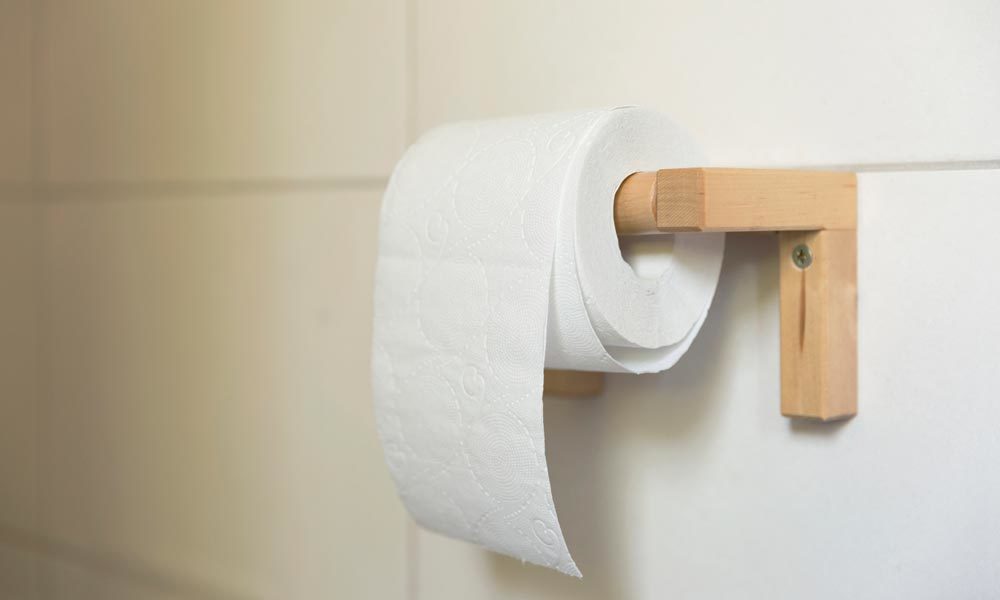
What Your Constipation Symptoms Mean
Having problems going to the bathroom isn’t always a reason for concern. It happens to almost everyone at some point. Most of the time, constipation goes away on its own or with a little help from an over-the-counter laxative. When the problem lingers, you need to have it checked out by a gastroenterologist.
How a Normal Bowel Movement Works
The digestive process begins when you chew food in your mouth. Once the food is soft and moist, you swallow it and it progresses down the gastrointestinal tract. As the food passes through the stomach, small intestine, and colon, your body absorbs nutrients and fluids along the way. Once the food reaches the end of the process, it passes out of your body through the rectum and anus as stool or feces. When the stool is too thin and watery, it passes through the large intestine quickly as diarrhea. When the stool is too dry, it passes through the large intestine too slowly, causing constipation.
What Is Constipation?
Constipation is difficulty emptying the bowels. Often, this results from not having enough water in your stool to keep them soft. Dried, hardened feces causes you to strain to move it out of your body. In other cases, the muscles that move waste through your colon and out of your body might not be working efficiently.
Constipation is usually defined as having fewer than three bowel movements during a week. Chronic constipation is when the condition lasts for weeks or months. Ongoing changes in your bowel habits can have a number of causes. Often, it’s something that you’re doing differently from normal. Things like traveling, changing your diet, or taking a new medication can upset your digestive tract. Pregnancy can also cause hormonal changes and other conditions that lead to constipation.
Not Getting Enough Fluids and Fiber
Fiber absorbs water and helps make stools easier to pass. Increasing the amount of high-fiber foods in your diet, such as whole grains, broccoli, beans, and legumes might help relieve your constipation. Make sure to add fiber slowly to prevent it from causing gas and other symptoms of digestive discomfort. Also, drink plenty of water throughout the day. Not only does water help the fiber work, but it also increases the amount of water in the stools and softens them.
Taking Medications
You may have seen TV commercials talking about constipation caused by opioid medications. Constipation is a common problem in people who take opioids over a long period of time. Opioids are effective pain medications often used to treat people with moderate to severe chronic pain. Opioids reduce the motions in various parts of the digestive tract which help digest and propel stools through the intestines. Sometimes, they prevent food from emptying completely out of the stomach (gastroparesis) causing digestion to slow down. Opioids also reduce normal digestive secretions and reduce the urge to have a bowel movement.
Opioids aren’t the only medications that cause constipation as a side effect. Even antacids used to treat acid reflux can cause problems with digestion. Check the list of potential side-effects on any prescription or over-the-counter medications you take. If you think your medication might be the culprit, talk with your doctor about alternatives or solutions for your constipation.
Lack of Exercise
Not getting enough exercise is one of the most common causes of constipation. If you haven’t been as active as normal, you could be losing muscle tone your digestive tract needs to work effectively. People with limited mobility due to illness, injuries, or aging, often suffer from constipation. Try to do more to keep your muscles strong and help your digestive tract keep things moving along.
Ignoring the Urge
Kids are the worst for ignoring the urge to go to the bathroom, but adults are sometimes guilty of it too. If you’re busy at work or someplace where you really don’t like the idea of using the bathroom, you might ignore the urge until a more convenient time. When you ignore it repeatedly, you may stop having the urge at all.
Irritable Bowel Syndrome
People with irritable bowel syndrome (IBS) may suffer predominantly from constipation or they may alternate between constipation and diarrhea. If your constipation is accompanied by abdominal pain, gas, bloating, distention of the stomach, and/or cramping, it may be a symptom of IBS.
Other diseases and injuries can cause constipation, too. Diabetes, diverticulitis, Parkinson’s disease, and bowel cancer are just a few examples. The causes of constipation range from minor to life-threatening. Any time you experience constipation that doesn’t go away or is accompanied by other changes in your digestion, it’s time to see a specialist. The sooner your doctor diagnoses a serious condition, the more likely the treatment is to be effective. If you have chronic constipation, contact Needham Gastroenterology Associates to schedule an appointment today. We can help find the source of your symptoms and determine the best course of action for your needs.